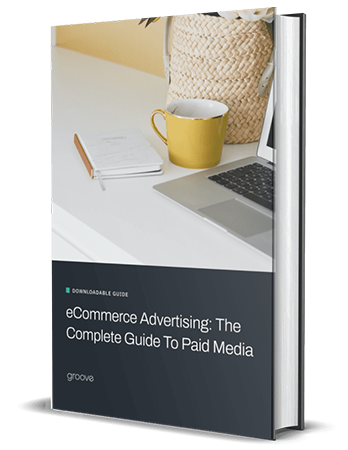Are your pay-per-click (PPC) advertising campaigns not delivering the ROI you need? While there's no denying the benefits of PPC ads when it comes to reaching your target customers, PPC advertising can also be a bottomless pit that swallows up all the money you throw into it unless you have the right strategy.
Mastering PPC for eCommerce advertising is often a process that involves quite a bit of effort and experimenting. However, there are a number of things you can do to get started improving your results right away. In this article, we'll take a look at eight such powerful PPC for eCommerce tips that will improve the ROI of your campaigns—and how working with an eCommerce ppc management company or eCommerce ppc consultant can help boost your results even more!
Know Your Demand Curve
Understanding your audience and their behavior is a major key to PPC success, and one important element of that is knowing your demand curve. Look into your analytics to see how demand for your products or services changes throughout the year based on factors like seasonality and holidays so you can pinpoint the times when demand is highest. You can then use this information to determine when your PPC for eCommerce campaigns will be most effective.
Show Ads at the Right Time
Speaking of determining when you should launch your campaigns, it's important to show your ads at the right time of day as well. Conduct some research to determine when your audience is the most active on your advertising platforms. Then, set your ad schedule according to what you find. If you're just getting started with paid search, we recommend setting your schedule to 24/7. After analyzing the reports and finding the time frames of highest audience activity, you can cut your ad schedule to focus on the times when the most people will see your ads.
Select Long-Tail Keywords
When it comes to PPC for eCommerce, the best keywords are those with high search volume and low competition. eCommerce PPC experts recommend that you should avoid broad-tail keywords like "dress" or "electronics", as these keywords receive millions of searches a month, and getting your page to rank for them will be next to impossible. Instead, eCommerce PPC experts recommend using more specific long-tail keywords like "Women's little black dress" or "Acer Chromebook 14". Not only are these keywords easier to rank for, but they also tend to more heavily target customers who know what it is they are looking for and are in the consideration/purchase stage of the buyer journey.
Build a Negative Keyword List
Negative keywords are keywords that you don't want your site ranking for. By building this list, you're telling search engines not to display your ad for those keywords.
So what makes a keyword a negative keyword? Generally, it's a keyword that your ad could be displayed for due to its relation to other keywords, but one you don't want to target due to it not being related to your brand or ideal customer. To identify negative keywords, we recommend performing a Google search of your favorable keywords and identifying any keywords that show up in relation to your favorable keywords. If they're unrelated to your brand or don't entice consumers to convert, add them to your negative keyword list.
Use Extensions
Ad extensions allow customers to easily access more detailed information about your brand, including info like your phone number, address, hours of availability, and links to landing pages. They can be a great way to make your ads more effective at converting customers, but it's important to note that adding an extension does not guarantee it will display within your ad. The extension must offer meaningful value, and your ad rank must fulfill a certain standard in order for the search engine to display your extensions.
Nevertheless, ad extensions can be a valuable PPC for eCommerce tool that's well worth taking advantage of if your ad qualifies.
Adjust Geolocation Settings
If you want to target an audience in a specific location, you can adjust your ad's geolocation settings to ensure that it is only shown to people in that area. This is especially helpful for brick-and-mortar stores that rely on customers visiting their physical location (if you own a barbershop in Denver, for example, showing ads to people in New York isn't going to do you much good). However, eCommerce stores can sometimes benefit from geotargeting as well if they are selling a product that appeals to people in a specific location.
Target Mobile Devices
Nearly 60% of all online searches are now conducted using mobile devices. By using Google's mobile-targeting capabilities, you can strategically create ads to target mobile users.
One key to this is optimizing both your ads and website for mobile users (which is something you should be doing even if you don't plan to create ads that are mobile-targeted), making sure to follow mobile eCommerce best practices along the way.
A/B Test
A/B testing is one of the most effective things you can do to improve the results of your PPC campaign and is a vital part of PPC for eCommerce. With A/B testing, you can compare how different ads perform—testing a wide range of variables—to determine which ones deliver the highest ROI.
Here at Groove, we test and optimize variables one at a time to help drive our client's strategic business decisions. For a more in-depth look at ideas and tips for A/B testing, read our related blog.
Conclusion
With the right PPC advertising strategy, it's possible to create and scale PPC campaigns that provide a positive ROI time and time again. If you would like to work with an eCommerce PPC management company that will help you optimize your PPC ads and strategy, we at Groove can help! Check out our case studies to see how Groove has helped countless eCommerce businesses supercharge their PPC advertising campaigns.
Or, if you're ready to get started working with an expert eCommerce PPC consultant, feel free to book a call with our eCommerce PPC Agency today!

eBook
eCommerce Advertising:
The Complete Guide To Paid Media
Explore tags:
About the author
Subscribe to the Groove Newsletter
Get the latest updates and insights straight to your inbox






